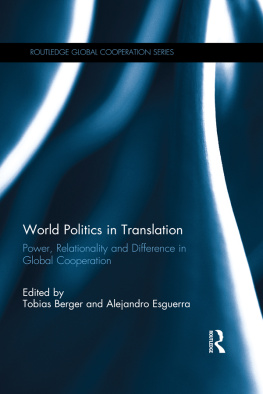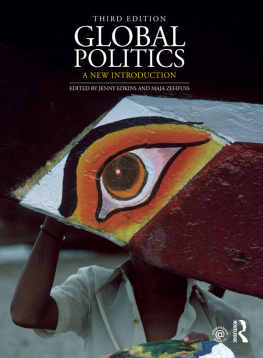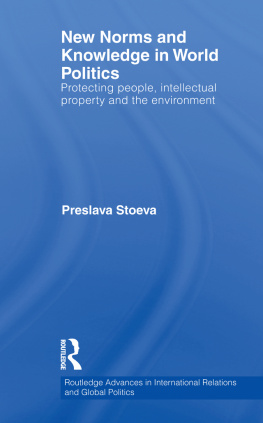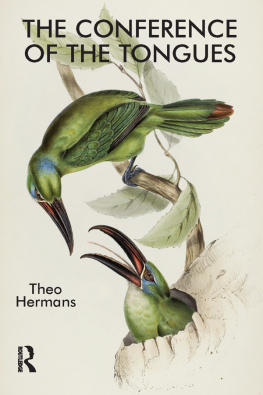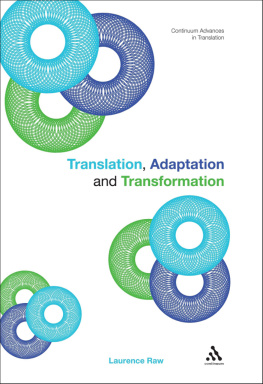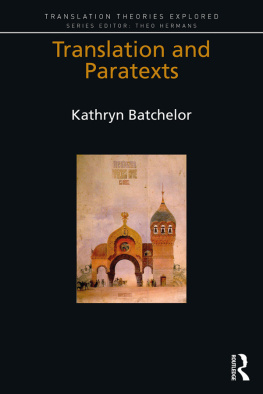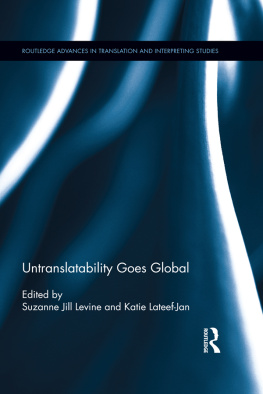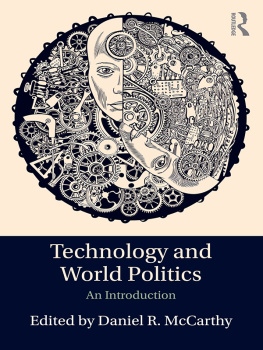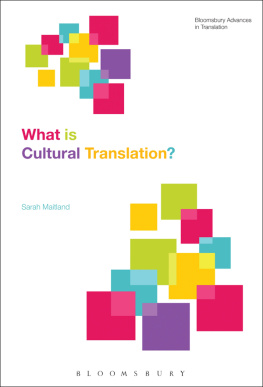First published 2018
by Routledge
2 Park Square, Milton Park, Abingdon, Oxon OX14 4RN
and by Routledge
711 Third Avenue, New York, NY 10017
Routledge is an imprint of the Taylor & Francis Group, an informa business
2018 selection and editorial matter, Tobias Berger and Alejandro Esguerra; individual chapters, the contributors
The right of the editor to be identified as the author of the editorial material, and of the authors for their individual chapters, has been asserted in accordance with sections 77 and 78 of the Copyright, Designs and Patents Act 1988.
All rights reserved. No part of this book may be reprinted or reproduced or utilised in any form or by any electronic, mechanical, or other means, now known or hereafter invented, including photocopying and recording, or in any information storage or retrieval system, without permission in writing from the publishers.
Trademark notice: Product or corporate names may be trademarks or registered trademarks, and are used only for identification and explanation without intent to infringe.
British Library Cataloguing-in-Publication Data
A catalogue record for this book is available from the British Library
Library of Congress Cataloging-in-Publication Data
A catalog record for this book has been requested
ISBN: 978-1-138-63057-4 (hbk)
ISBN: 978-1-315-20933-3 (ebk)
Typeset in Goudy
by Keystroke, Neville Lodge, Tettenhall, Wolverhampton

Uli Beisel is Assistant Professor in Culture and Technology at the Department of Anthropology of Bayreuth University (Germany) and holds a PhD in Human Geography from the Open University (UK). She has worked on human-mosquito-parasite entanglements in malaria control in Ghana and Sierra Leone and on the translation of new health technologies in Uganda and Rwanda. Her new research is looking at trust in biomedicine and its relation to health care infrastructures after the Ebola epidemic in a comparative project in Sierra Leone, Ghana and Uganda. Beisels work has been published by inter alia Science as Culture, Society and Space, Biosocieties and Geoforum .
Tobias Berger is Assistant Professor for Transnational Politics of the Global South at Freie Universitt Berlin. He held visiting fellowships at the Department of Law and Anthropology at the Max Planck Institute for Social Anthropology, Halle/Saale and the Institute for Human Sciences in Vienna. His research focuses on the interaction between global norms and non-state institutions in the Global South. His book on Global Norms and Local Courts: Translating the Rule of Law in Bangladesh is forthcoming with Oxford University Press in 2017.
Endre Dnyi is currently Lecturer and post-doctoral researcher at the Department of Sociology at the Goethe University in Frankfurt am Main. Inspired by Actor-Network Theory (ANT), his PhD thesis focused on the ways in which liberal democracy can be understood as a diverse set of material and discursive practices held together by a parliament. In his Habilitation , Dnyi examines three instances when liberal democracy breaks down or reaches its limits: the European refugee crisis, global drug policy and indigenous politics in Northern Australia. In addition to teaching and doing research, Dnyi is also Founding Editor of Mattering Press, an open-access book publisher.
Alejandro Esguerra is a post-doctoral researcher in the DFG research group Wicked Problems, Contested Administration (WIPCAD) at the University of Potsdam, Germany. He obtained his PhD at the Freie Universitt Berlin and conducted research at Cornell University, the Helmholtz Centre for Environmental Research, UFZ, as well as the Centre for Global Cooperation Research in Duisburg. His work is concerned with the role of knowledge and practice in international relations theory, transnational private governance and epistemic authority in global environmental politics. His most recent publications are, with Silke Beck and Rolf Lidskog, Stakeholder engagement in the making: IPBES legitimization politics in Global Environmental Politics as well as, with Nicole Helmerich and Thomas Risse, Sustainability Politics and Limited Statehood: Contesting New Modes of Governance (Palgrave Macmillan 2017).
Richard Freeman is Professor of Social Science and Public Policy and Co-Director of the Academy of Government at the University of Edinburgh. He teaches Knowledge and Practice at the Academys Masters programme in Public Policy, as well as Theory and Method in the Graduate School of Social and Political Science. He is a former Fulbright Scholar and Jean Monnet Fellow and has held visiting positions at the Hanse-Wissenschaftskolleg in Bremen, the Institut dtudes Politiques (Sciences Po) in Paris and Yale University in New Haven, Connecticut. His research is concerned with knowing and doing in politics. It draws on public policy as well as social theory, the sociology of knowledge and science and technology studies in exploring public action. His most recent books are, with Steve Sturdy, Knowledge in Policy: Embodied, Inscribed, Enacted (Policy Press 2014) and, with Jan-Peter Vo, Knowing Governance: The Epistemic Construction of Political Order (Palgrave Macmillan 2015).
Katharina Glaab is Associate Professor in Global Change and International Relations at the Department of International Development and Environment Studies at the Norwegian University of Life Sciences. Her research and teaching revolve around questions of normative change and the politics of knowledge in global environmental politics. She has published on norms in international relations, conflicts around agricultural biotechnology in China and India, faith actors and climate change, as well as critical research on power.
Rebecca-Lea Korinek is a research fellow at the WZB Berlin Social Science Centre, Germany. In her ongoing dissertation, Korinek compares how the practices used by national food safety agencies to build and cultivate politico-epistemic authority have changed in recent decades. Her research interests include the co-production of political and epistemic authority in contested policy fields. Her empirical research focuses on the fields of food safety, consumer, energy and mobility policy. In particular, she engages with the modes of policy-making from the perspective of behavioural sciences as well as with multi-stakeholder involvement. She has published in Public Administration , Innovation: The European Journal of Social Sciences and der moderne staat (dms) Zeitschrift fr Public Policy, Recht und Management as well as in edited volumes with Oxford University Press and Palgrave Macmillan among others.
Noemi Lendvai-Bainton is a senior lecturer in Comparative Public Policy at the University of Bristol. Her interest in critical policy studies, Europeanization of social policy and the politics of translation has been formative for her co-authored book with John Clarke, David Bainton and Paul Stubbs: Making Policy Move Towards a Politics of Translation and Assemblage (Policy Press 2015). Her most recent work focuses on the rise of authoritarian neoliberalism and its transnational co-production in Europe.
Arlena S. Liggins is a PhD student in the DFG-funded project Translating global health technologies: standardization and organizational learning in health care provision in Uganda and Rwanda at the University of Bayreuth. While her research interest generally evolves around (the emergence of) non-communicable diseases, Liggins is presently focusing on technological aspects of diagnosing and testing diabetes in Uganda.
Farhad Mukhtarov is a public policy scholar specializing in studying water resources and the environment with a focus on the politics of knowledge. He is currently a researcher at the Copernicus Institute of Sustainable Development at Utrecht University and an adjunct senior research fellow at the Institute of Water Policy at the National University of Singapore. His work has appeared in numerous international peer-reviewed journals including Environmental Science & Policy, Policy Sciences, Global Governance, Globalizations, Policy & Politics and edited volumes with major university presses, such as Oxford University Press.

